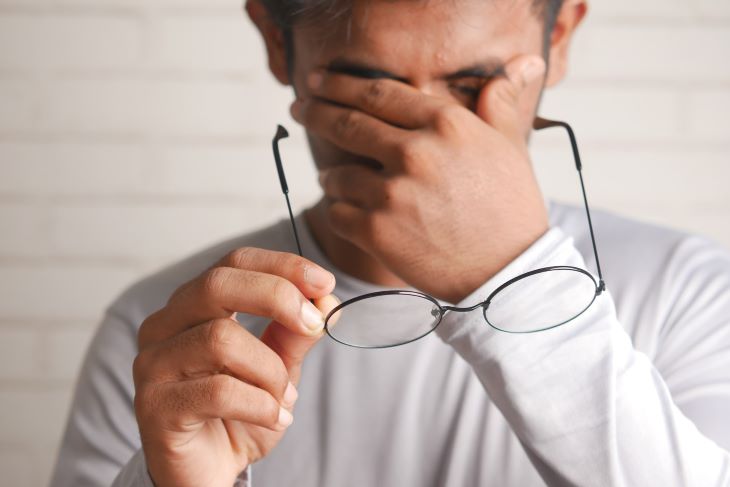- Home
- Addiction Guides
- Do I Need a Valium Detox?
Do I Need a Valium Detox?
Valium is a highly addictive substance, classed under the benzodiazepine category of substances.
Known under the trade name of Valium, diazepam is generally used to treat anxiety and its related disorders as well as a range of other behaviours such as restless leg syndrome and muscular spasms.
In some cases, it may also be used to help with the withdrawal symptoms associated with other benzodiazepines such as alprazolam (Xanax) as well as addictions to alcohol.
The class of drugs known as benzodiazepines are generally considered as sedatives, hence their usage in treating the disorders previously mentioned.
However, when used over a long period of time or with other substances such as alcohol, they can be incredibly dangerous. This is because the usage can develop into a Valium addiction.
In the past, Valium was one of the most popular and common drugs distributed across the US due to its effectiveness in treating the consequences of social stresses. (1)

Although the prescriptions of Valium have decreased recently, it still remains one of the most common addictions in the world today.
In some cases, Valium was seen as a way of attempting to control the population due to the misconception that it reduced anxiety but had no other side effects (2).
This is not the case as modern research has since assessed the use of Valium in treating anxiety as well as taking into account the various side effects that Valium is known to have.
The following article outlines the dangers of taking Valium, the withdrawal symptoms that are associated with the Valium detoxification process, and where help and support can be found.
At Rehab Recovery, we offer free advice from a team of non-judgemental professionals, many of whom are in recovery and understand how hard can be to change your relationship with addiction.
For help with a Valium detox for yourself or a loved one, simply reach out to our 24/7, confidential hotline on 0800 088 6686.
Valium is a physically addictive substance

With some substances, an individual is known to become physically dependent on them.
Valium is a physically addictive substance and therefore has far more risks associated with it than some other substances.
This refers to many aspects of addictive substances.
Firstly, an individual will begin to seek more and more of the substance to gain the same effect.
After consuming Valium for the first time, the individual’s body will react to the effects that it has.
Whether the individual is taking this substance recreationally or medically, they will react to the positive short-term effects that it may have e.g., improving sleep for individuals with anxiety disorders.
This will lead them to seek more of the substance as the first few times that an individual consumes Valium, they will experience much stronger effects.

After this first experience, individuals will need to consume an increased amount in order to gain the same effects.
Secondly, the body will become dependent on Valium to produce certain chemicals and hormones.
This means that without the substance, the individual will not be able to produce these chemicals at the same rate or in the same quantities.
This can have serious effects on the individual’s ability to go about their daily life and, in turn, may affect many other areas of the individual’s life such as career, relationships, finances, and mental wellbeing.
Physical dependence also affects the difficulties experienced during withdrawal, and this is covered later in the article.
At Rehab Recovery, we offer free advice from a team of non-judgemental professionals, many of whom are in recovery and understand how hard can be to change your relationship with addiction.
For help with a Valium detox for yourself or a loved one, simply reach out to our 24/7, confidential hotline on 0800 088 6686.
How do I know if I’m addicted to Valium?

In the case of addictions, it can often be challenging to tell whether or not an individual is addicted to a substance or if they are attempting to conceal their behaviours.
An addiction to Valium may also include a dependence on the substance, but this is not always the case i.e., if the individual is using Valium for a medical issue, then they will use it over a long period of time.
This may lead to a dependence but is not necessarily considered to be an addiction.
There are many other ways to determine whether or not is someone is addicted.
For example, if the individual is asking for or consuming another individual’s Valium prescription, this is a sign of addictive behaviour.
Additionally, if the individual is taking more of the substance than they are prescribed without consulting their healthcare professional, this is also a sign.
Any individual taking Valium in a way other than that prescribed by their healthcare professional e.g., injecting, may also be considered to be addicted.
Valium is a useful drug, along with other benzodiazepines, for the treatment of the disorders for which it is prescribed such as the treatment of anxiety (3) but usage beyond this can have serious consequences.
As Valium is a physically dependent substance, individuals are encouraged to be especially careful, often with medical supervision, when undergoing a Valium detox.
The full procedure and duration of this process is outlined over the next few paragraphs, including withdrawal symptoms and the environments in which this may take place.
Withdrawal symptoms from Valium

As mentioned previously, the physically dependent nature of Valium can seriously affect the way in which individuals progress through the withdrawal symptoms associated with a Valium detox.
Although Valium is prescribed, in general, to treat anxiety, there are many ways in which Valium can affect this disorder as well as the physical health of the individual during a detox.
In the short-term, individuals may begin to experience headaches, sweating, muscular aches and pains, as well as weakness and a generally heightened sensitivity.
This can seriously affect an individual’s ability to undergo their everyday lives e.g., going to work, communicating with others, managing personal finances and other factors.
At Rehab Recovery, we offer free advice from a team of non-judgemental professionals, many of whom are in recovery and understand how hard can be to change your relationship with addiction.
To discuss help with a Valium detox for yourself or a loved one, simply reach out to our 24/7, confidential hotline on 0800 088 6686.

These withdrawal symptoms generally appear within the first 12 to 24 hours after the individual’s last consumption of Valium but can quickly worsen to more serious symptoms.
Within the first two weeks of the individual’s Valium withdrawal, they are likely to experience most of the withdrawal symptoms.
This can then worsen, with other symptoms such as increased anxiety, nausea, weight fluctuation, and heart palpitations.
Some of these withdrawal symptoms are associated with mental health, but others affect the individual’s physical health.
This is why it is always recommended to undergo a Valium detox with medical supervision and assistance.
In some cases, it may also be recommended to undergo this process within a dedicated detox clinic such as those found in residential rehab centres.
This is to ensure the highest level of care throughout the process and is generally recommended to those with a longer history of a Valium addiction.
Valium detoxification

Detoxification programmes are available for individuals in all different situations.
Whether it is a short-term addiction arising as a result of a medical prescription or a long-term addiction that has worsened over a long period of time, support is available.
In all cases, medical supervision is recommended.
This is generally the case with all physically dependent substance due to the dangers associated with the individual’s physical health and the life-threatening consequences of an unmanaged and unsupervised detox.
Medical support is available through these programmes, though they can also include mental health support or further counselling, though this is explained in more detail later in the article.
In general, it is recommended that individuals undergo a process known as tapering.
This refers to the slow and gradual transition away from Valium to a similar substance or to complete abstinence, depending on the individual’s case.
This is the safest way to undergo a detox from benzodiazepines due to the assessment that can happen throughout each stage.

For example, a medical professional could reduce the individual’s Valium consumption slightly, assess their vital signs and general health, before deciding to reduce it further.
This makes the tapering process extremely flexible and tailored towards each individual. In general, the process of a Valium detox may take around 10-14 days, though this is different in every individual case.
In addition, individuals may be likely to suffer from late withdrawal.
This refers to the continuation of some withdrawal symptoms, especially those relating to mental health.
In these cases, a medical professional may recognise these symptoms and prescribe the individual to undergo counselling or other therapeutic techniques alongside their Valium withdrawal and/or tapering process.
At Rehab Recovery, we offer free advice from a team of non-judgemental professionals, many of whom are in recovery and understand how hard can be to change your relationship with addiction.
To discuss help for yourself or a loved one struggling with Valium addiction, simply reach out to our 24/7, confidential hotline on 0800 088 6686.
Is it possible to undergo a Valium detox at home?

In most cases, undergoing a Valium detox whilst at home is not recommended. As mentioned in the previous paragraphs, Valium is a physically addictive substance, meaning that it comes with increased risks.
In all cases, the withdrawal and detoxification process should be fully supervised.
This can include visits from a medical professional to the individual’s home or local area, but it is often far more recommended for individuals to undergo a Valium detox whilst in a dedicated detox clinic.
This will allow for emergency situations and to gain additional support should it be needed.

In addition, detox clinics are often fully stocked and supported with the resources needed in any situation.
Across the UK, there are may residential centres which support detox clinics and Valium detoxes.
An individual does not necessarily have to be enrolled into one of these centres i.e., for full time treatment, but they are generally welcome to undergo a detox session, no matter their history with Valium and consumption of the substance.
In the cases where an individual may not be suitable for a detox clinic, either due to medical reasons, personal preference, or other factors, they may be able to undergo a detox in a different location.
Rhis should be fully discussed with an individual’s rehabilitation provider before proceeding.
Further rehabilitation for a Valium addiction

After an individual has undergone a Valium detox, it is generally recommended to continue with further rehabilitation in order to combat the other factors that may have been affected as a result of a long-term Valium addiction.
As mentioned above, an individual may choose to remain in a residential centre, taking part in rehabilitative techniques such as therapy and addiction treatment programmes on a daily basis.
This is especially useful for the negative effects to the individual’s mental health, some of which can last years after the individual’s last dose of Valium.
Alternatively, individuals may choose to engage in various addiction treatment programmes whilst remaining in their local area.
This is a better option for those who may not be suitable for residential rehabilitation but is also a way for individuals to remain at home, supporting and supported by the friends and family around them.
Common types of therapy include cognitive behavioural therapy (CBT) and group talking therapy.
These are the two most common techniques as they are the most flexible and supportive for individuals recovering from a long-term Valium addiction.
CBT is focussed on helping the individual to create their own coping mechanisms and techniques.
Group talking therapy allows individuals to share and learn from the experiences of others and from themselves.
Both of these techniques can be specialised in each individual case and changed as the course of treatment progresses in order to support the individual as they require and benefit from.
Rehab Recovery is here to help

Rehab Recovery understands the difficulties faced by those struggling with Valium addiction.
With years of experience and thousands of individuals using our services every year, we listen to each individual and help them to make the best decisions possible.
Through our referral programme, Rehab Recovery can put individuals in contact with residential centres, addiction support programmes, and local addiction treatment.
Each addiction treatment service provider is fully assessed by Rehab Recovery, meaning that the theories and practises put into place are always of the highest standard.
Our recommended facilities follow modern addiction technology advances, and always keep the individual and their needs at the focus of all treatments.
To learn more, or to begin the process of Valium detox, please do not hesitate to contact Rehab Recovery today on 0800 088 66 86.
A member of our team will be happy to help, whether you’re at the beginning of your rehab journey or needing a little additional support – Rehab Recovery supports all individuals at any stage of the rehabilitation process.

References
[1] Waldron, I., 1977. Increased prescribing of Valium, Librium, and other drugs—an example of the influence of economic and social factors on the practice of medicine. International Journal of Health Services, 7(1), pp.37-62.
[2] Koumjian, K., 1981. The use of Valium as a form of social control. Social Science & Medicine. Part E: Medical Psychology, 15(3), pp.245-249.
[3] Burrows, G.D., Dumovic, P., Smith, J.A., Norman, T. and Maguire, K., 1977. A controlled comparative trial of clorazepate (Tranxene) and diazepam (Valium) for anxiety. Medical Journal of Australia, 2(16), pp.525-528.




